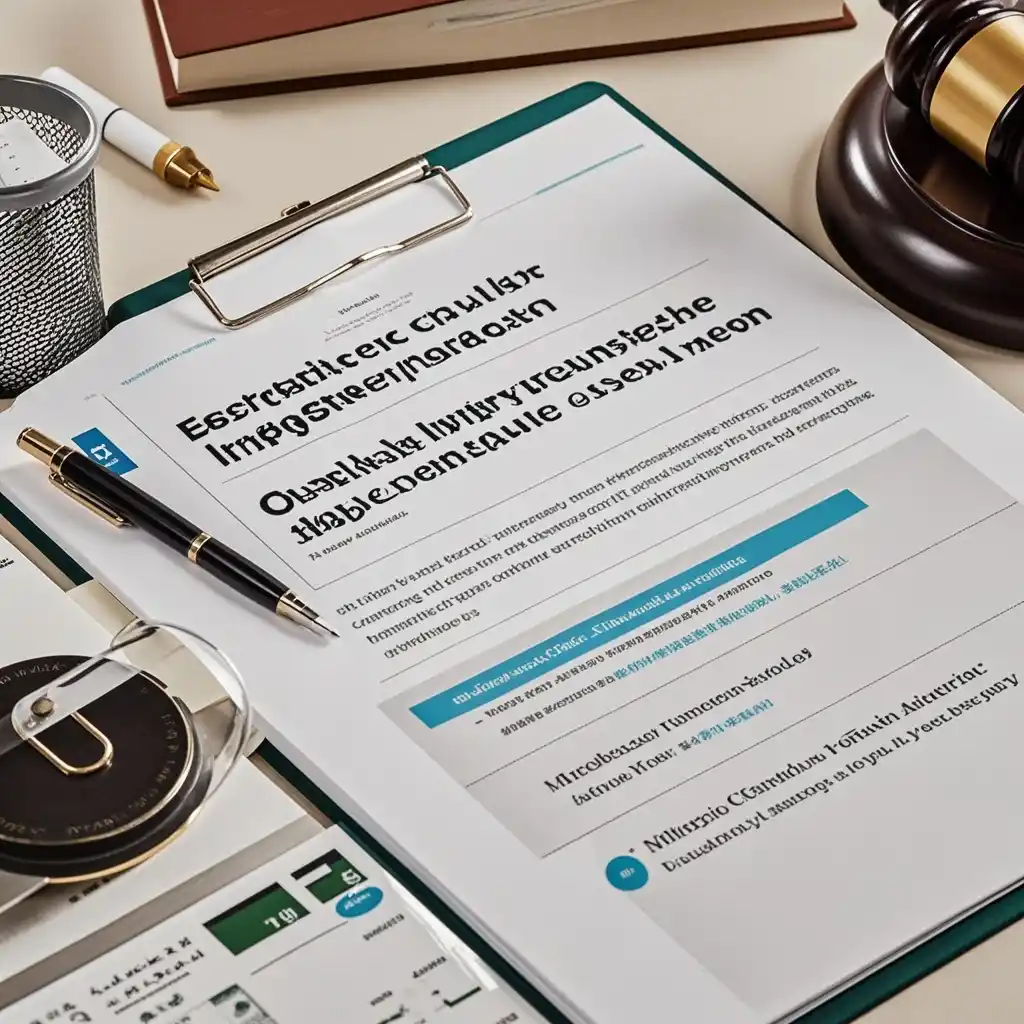

Navigating Intellectual Property Risks in Cross - border E - commerce: A Guide for Legal Teams Amid Tariff Increases
In the dynamic realm of cross - border e - commerce, legal teams are facing a complex web of challenges, especially with the backdrop of tariff increases. This situation has a profound impact on intellectual property (IP) management within the e - commerce sphere.
1. Background
The growth of cross - border e - commerce has been exponential in recent years. It has opened up new markets for businesses around the world, allowing them to reach consumers far beyond their domestic boundaries. However, this expansion has not been without hurdles. Tariff increases have become a significant concern. Tariffs are often imposed for various reasons, such as protecting domestic industries or as a result of trade disputes between countries. For e - commerce businesses, these tariff hikes can directly affect their cost structure, pricing strategies, and ultimately their competitiveness in the global market.
At the same time, the importance of intellectual property in e - commerce cannot be overstated. Brands rely on trademarks to distinguish their products, patents to protect their innovative technologies, and copyrights to safeguard their creative works such as product descriptions, images, and videos. In the cross - border context, IP protection becomes even more challenging as different countries have different laws and regulations regarding IP.
2. Intellectual Property Challenges
2.1. Counterfeiting and Piracy
One of the most prominent IP challenges in cross - border e - commerce is counterfeiting and piracy. With the ease of setting up online stores and the vastness of the global e - commerce market, counterfeiters can quickly target popular brands. For example, a well - known luxury brand that sells high - end handbags may find numerous counterfeit versions of its products being sold on international e - commerce platforms. These counterfeits not only damage the brand's reputation but also lead to significant revenue losses.
In a case study, a renowned sports equipment brand noticed a sharp decline in its sales in a particular overseas market. Upon investigation, they discovered that a large number of counterfeit products were being sold at a much lower price on a major e - commerce platform in that country. The counterfeits were of such poor quality that they were giving the brand a bad name among consumers who unknowingly purchased them.
2.2. Jurisdictional Issues
Different countries have different IP laws and enforcement mechanisms. This poses a major challenge for legal teams in cross - border e - commerce. For instance, the requirements for trademark registration and the scope of protection may vary widely. A brand that is well - protected in its home country may find that its IP rights are not as comprehensively safeguarded in another country.
Consider a tech startup that has developed a unique software product and holds a patent in its home country. When it tries to expand into a foreign market, it discovers that the patent laws in that country are not as favorable. There are different standards for what constitutes an "innovative" product, and the enforcement of patent rights is much weaker.
2.3. Licensing and Royalty Management
In cross - border e - commerce, managing IP licensing and royalty payments can be a nightmare. With multiple parties involved, such as manufacturers, distributors, and e - commerce platforms, ensuring that all parties are compliant with the licensing agreements can be extremely difficult. For example, a software company that licenses its product to an e - commerce vendor in another country may face challenges in tracking the number of copies being used and ensuring that the correct royalty payments are made.
3. Strategies for Legal Teams
3.1. Proactive IP Protection
Legal teams should encourage businesses to be proactive in protecting their IP. This includes registering trademarks, patents, and copyrights in all relevant countries before entering the market. For example, a fashion brand planning to sell its products in multiple countries should register its trademarks in those countries well in advance. This will help in preventing others from using the brand name or logo and will give the brand a stronger legal standing in case of disputes.
3.2. Due Diligence on E - commerce Platforms
Before partnering with an e - commerce platform, legal teams should conduct thorough due diligence. They should review the platform's IP protection policies, procedures for handling counterfeit products, and its track record in dealing with IP disputes. For instance, if a business is considering selling on a large international e - commerce platform, the legal team should ensure that the platform has a robust system in place for removing counterfeit listings quickly and effectively.
3.3. International IP Agreements
3.4. Monitoring and Enforcement
Legal teams need to continuously monitor the e - commerce environment for any potential IP infringements. This can be done through the use of specialized software that can scan e - commerce platforms for counterfeit products or unauthorized use of trademarks and copyrights. In case of infringement, prompt legal action should be taken. For example, if a brand discovers that its product images are being used without permission on an e - commerce site, the legal team should send a cease - and - desist letter immediately and, if necessary, pursue legal litigation.
4. Summary
In the face of tariff increases, cross - border e - commerce legal teams must be vigilant in managing intellectual property risks. The challenges of counterfeiting, jurisdictional differences, and licensing management are complex but not insurmountable. By implementing proactive protection strategies, conducting due diligence, negotiating international agreements, and actively monitoring and enforcing IP rights, legal teams can help e - commerce businesses navigate these challenges successfully. Protecting IP in cross - border e - commerce is not only crucial for the financial success of businesses but also for maintaining their brand reputation in the global marketplace.